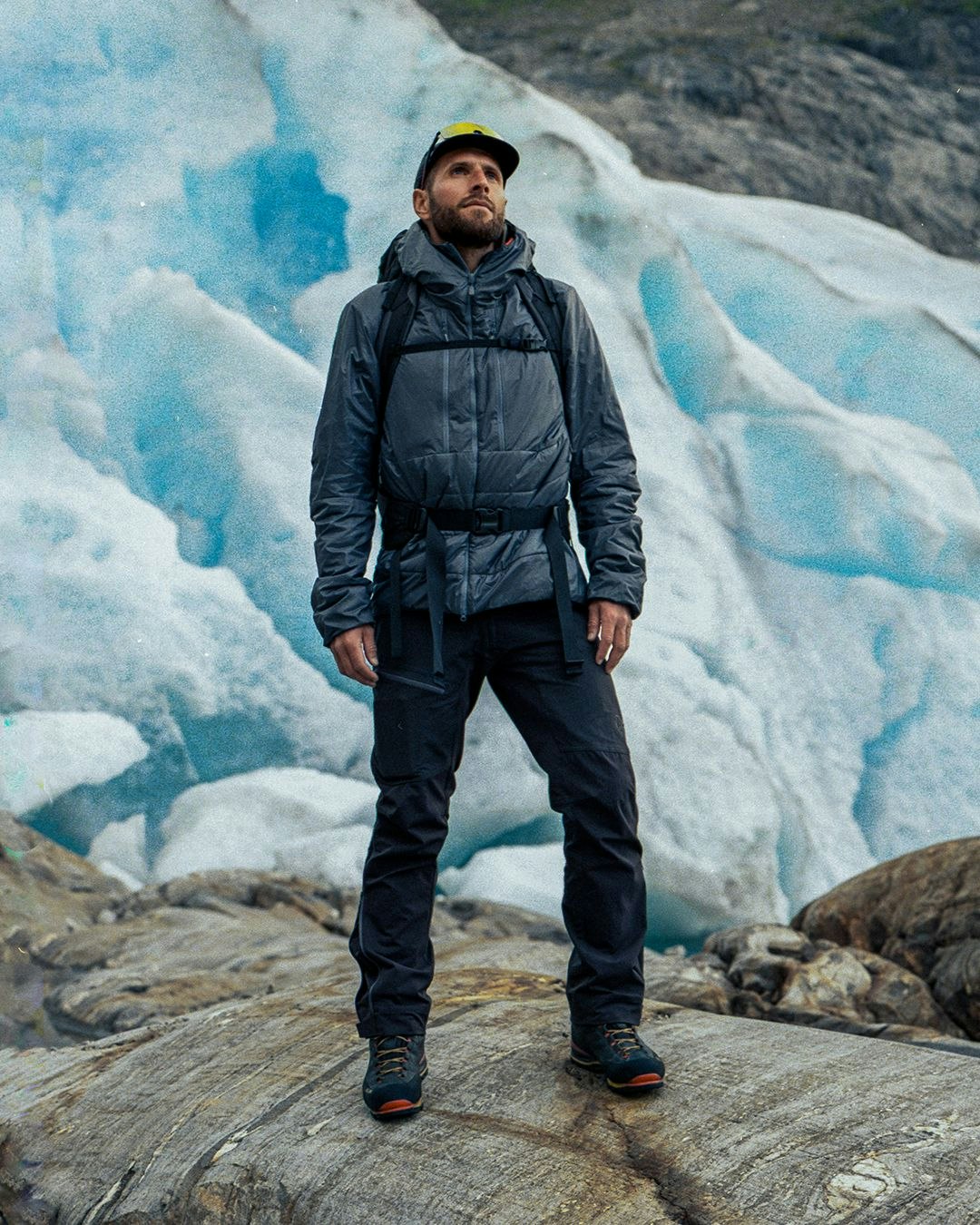Vincent Colliard
Vincent Colliard

Vincent Colliard has landed his dream job as a polar explorer. However, living out his passion is not all fun and games. The Frenchman, currently residing in the Basque Country, goes on his expeditions to raise awareness about the world’s melting glaciers and ice caps. Within a decade he, along with childhood hero Børge Ousland, hope to have skied across the 20 largest glaciers on the planet – given they are still there.
Vincent grew up in the southwest of France between the voice of the mountains and the call of the ocean. After reading tales of adventure at the age of 17, he developed the dream of exploring the most remote places on earth. “My childhood hero was Børge Ousland, he says. When I was 21 I had just ended an expedition in Tierra Del Fuego, and I sent him some photos from the trip. He saw one shot where I was standing near my current tent and Børge mentioned I should use Helsport tents. I contacted them, and a few weeks later I received my first Helsport tunnel tent.”
Having well-functioning gear means Vincent can enjoy the journey (even when it becomes tough) and feel warm and protected at the end of a stormy day. Because he trusts the gear, he’s able to enjoy the bad weather. Well-functioning gear equals higher chance of success and coming back home safe.
“Adventure is a constant desire. It is a way of understanding how vulnerable we are and that we are connected with nature.”
“A few years ago I was at the north pole. It was -32ºC outside, I was cold, but the chill was personal – and temporary. The earth is getting warmer and warmer – permanently. Through the Ice Legacy project we aim to focus on how fragile the polar regions are and the importance of the cold and the ice. Sitting at home we don’t feel a temperature increase of a couple of degrees, but in the polar regions, this same temperature difference transforms ice into water. When I hear about the warming temperature of our planet, the responsibility is so overwhelming that it seems undoable to me. But with one step at a time, we can achieve feats that we imagined impossible."
The Northwest Passage is a route that connects the Pacific to the Atlantic ocean through the northern part of the American continent. In 2010, Vincent and Børge Ousland sailed through it in 25 days. One century earlier, it took the Norwegian explorer Roald Amundsen three years to cross the same passage. Due to the retreating ice, this can now be done in a month. “The Ice Legacy project is a series of ongoing expeditions across the world’s most glacial regions over the next ten to 15 years. Our goal is to explore, document and raise awareness about melting ice. We want to encourage the conservation of these wild spaces and initiate long term activism toward the conservation of these ice caps. It’s an adventure, yes, but a cause too. When I see this beauty, I feel we all have a responsibility to protect the wilderness.”
For Vincent, ice caps are unique playgrounds where he feels alive. He likes how they challenge him. But they have no voice, they are fragile and dramatically receding. Not only does the ice melt, but the ecosystem around it is also affected. Living in the outdoors and connecting with the natural elements has taught him the importance of resource conservation.
The adventures have changed his mindset, the way he consumes and reminds him of our human footprint. “I tax myself $1 each time I come home with something plastic and give it to non-profit environmental organisations. I try not to buy stuff that I don’t really need, I consume local seasonal food, and my latest effort is to plant a tree each time I take a plane.”
Exploring is in Vincent’s blood. It’s not something he can switch on or off. And his dream through the Ice Legacy project is to preserve vast wildernesses to enjoy for future generations. "Adventure is a constant desire. It is a way of understanding how vulnerable we are and that we are connected with nature. It is by living intense magical moments in the wilderness that we realize how beautiful our planet is. For our children, this doesn’t mean spoiling them with plastic gifts for Christmas, it means giving them a chance to explore a world still wild. For me, that means a lot of ice, and some good, fat polar bears!”